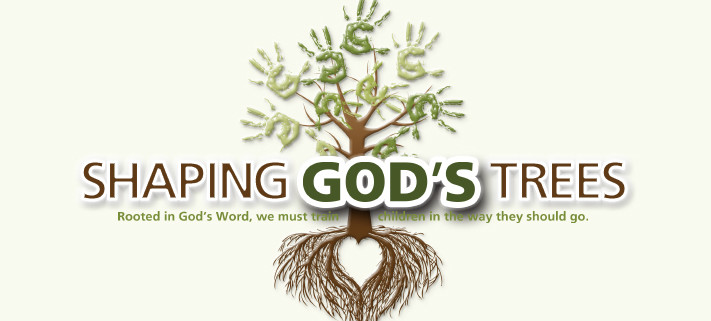Shaping God’s trees
Rooted in God’s Word, we must work hard to train children in the way they should go.
Claire E. Natsis
As a teacher, I was out at recess with the kids. The playground is next to a busy street. One vehicle passed by which made me chuckle. It was a large truck for a tree-trimming business with a slogan sprawled on the side: “God made ‘em, We shape ‘em!”
I laughed and shared the chuckle about the truck with the other teacher outside. She smiled and said, “That fits with us and our students too!”
How true! God has created each little life in our lives, and whether we are parents or teachers, we have the responsibility to shape them like trees.
GUIDING CHRISTIANS OF THE FUTURE
The most important part of our shaping is to introduce them to the Word. We might send the children to a school or Sunday school that teaches God’s Word as truth. At home we have daily devotions. We sing Christian songs or listen to Christian music. Any exposure to God’s Word is a chance for children to see the wonderful gifts that God has given us.
But it doesn’t stop there. We are an example for them to follow as they grow. In the car, at a restaurant, or on the street, we show children how to act in our daily lives. We don’t talk negatively about others. We don’t curse or swear or say inappropriate things. We keep things in order as best that we can. When children see how adults should act, they will be more inclined to act that way as well.
Little saplings need discipline. It’s no secret that we are all sinners in this world. Children make mistakes. Discipline means more than punishment; it is a way to direct children to grow straight and strong. Talking to children about bad behavior helps them to understand why we don’t do it and how we can use other methods to solve the problem. Knowing the forgiveness of Jesus helps them move in positive directions.
KEEPING OURSELVES READY FOR THE TASK
As much time as we spend shaping the little trees God gives us, we understand that we are God’s tools. And we can break. We are not perfect. Sometimes we just have to get that gossip off our lips. The bad example also shapes the tree when we swear as that car swerves into our lane or we decide to skip church on a Sunday morning. We all are susceptible to temptations.
When we as God’s tools become dull or broken, the only thing that can repair us is God’s Word. We need to regularly stay in his Word—not just to set an example for the children but also to keep our lives rooted in the great love of God in Jesus. Just like a tree needs to be watered regularly, tools need to be sharpened regularly. When God stays at the center of our lives, our lives change for the better.
God gave ‘em; we shape ‘em. That’s what God asks of us: “Start children off on the way they should go, and even when they are old they will not turn from it” (Proverbs 22:6). It is our responsibility not only to train, but to keep ourselves ready to train.
The trees in your life may come in many different sizes—small little sprouts, thin stalks, even strong and more mature trees. All of them require maintenance, and it is our job—with God’s guiding help—to shape them into the Christians of the future.
Claire Natsis is a teacher at Christ Our Redeemer Lutheran School, Aurora, Colorado.
SUBMIT YOUR STORY
Do you have a manuscript, idea, or story from your own life you’d like to share for use in Forward in Christ or on wels.net? Use our online form to share it to our editorial office for consideration.
SUBSCRIBE TO FORWARD IN CHRIST
Get inspirational stories, spiritual help, and synod news from Forward in Christ every month. Print and digital subscriptions are available from Northwestern Publishing House.
Author: John E. Holtz
Volume 103, Number 2
Issue: February 2016
Copyrighted by WELS Forward in Christ © 2021
Forward in Christ grants permission for any original article (not a reprint) to be printed for use in a WELS church, school, or organization, provided that it is distributed free and indicate Forward in Christ as the source. Images may not be reproduced except in the context of its article. Contact us




